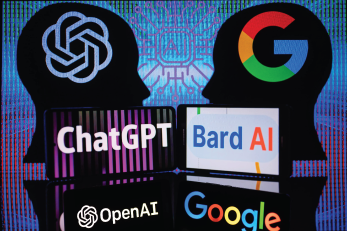Artificial intelligence (AI) has transcended its origins as a sci-fi concept to become a transformative force in modern business. It’s no longer a question of if companies should adopt AI, but rather how they can do so effectively. For many business leaders, the journey from curiosity to implementation is fraught with challenges—technical jargon, hype, and uncertainty about ROI. This guide is here to change that.
With a clear roadmap, actionable strategies, and real-world examples, you can integrate AI into your business confidently and unlock its immense potential to streamline operations, boost profits, and gain a competitive edge.
Understanding AI: Demystifying Key Concepts
Before diving into implementation, it’s crucial to understand the fundamentals of AI and its related fields:
Artificial Intelligence (AI):
AI refers to the development of systems that can perform tasks requiring human intelligence, such as decision-making, language understanding, and problem-solving.
Machine Learning (ML):
A subset of AI, ML focuses on training systems to learn from data and improve performance over time without being explicitly programmed.
Deep Learning (DL):
A specialized branch of ML, deep learning uses neural networks to analyze complex patterns in data, enabling breakthroughs in fields like image recognition and natural language processing (NLP).
By understanding these terms, you’ll cut through the noise and identify how AI can align with your business objectives.
Practical Use Cases: How Businesses Are Using AI Today
AI’s versatility allows it to enhance operations across various industries. Here are some practical applications:
1. Enhancing Customer Experiences
- Chatbots and Virtual Assistants: Companies like Sephora use AI-driven chatbots to provide personalized product recommendations, boosting customer engagement and sales.
- Predictive Analytics: E-commerce platforms leverage AI to analyze browsing behavior and suggest relevant products, driving revenue growth.
2. Automating Routine Tasks
- Accounting and HR Automation: Tools like AI-powered invoice processing and recruitment platforms save time and reduce human error.
- Supply Chain Optimization: AI helps companies like Amazon forecast demand and optimize inventory management.
3. Driving Innovation
- Product Development: AI accelerates research and development by analyzing market trends and customer feedback.
- Healthcare Breakthroughs: Companies like IBM Watson Health use AI to analyze medical data and suggest treatment options.
Overcoming Common Challenges in AI Adoption
Adopting AI isn’t without its hurdles. Here are strategies to navigate the most common roadblocks:
1. Internal Resistance
- Solution: Educate teams on AI’s benefits and provide hands-on training to build confidence in its use.
2. Ethical Concerns
- Solution: Develop a robust AI ethics policy that addresses bias, transparency, and data privacy.
3. ROI Uncertainty
- Solution: Start with pilot projects to demonstrate value and scale successful initiatives.
4. Data Challenges
- Solution: Invest in data management and ensure access to clean, structured data for training AI models.
Selecting the Right AI Technologies
Choosing the right AI tools and technologies is critical to success. Follow these steps to make informed decisions:
1. Define Business Goals
- Identify specific problems AI can solve or opportunities it can unlock.
2. Evaluate Tools
- Compare solutions based on scalability, ease of integration, and vendor support.
3. Leverage Frameworks
- Use industry-proven frameworks, like CRISP-DM (Cross-Industry Standard Process for Data Mining), to guide your AI initiatives.
4. Partner Strategically
- Collaborate with AI vendors, consultants, or academic institutions to access expertise.
Actionable Strategies for AI Integration
1. Start Small
- Begin with a manageable project to minimize risk and build organizational buy-in.
2. Assemble the Right Team
- Combine domain experts with AI specialists to ensure solutions address real business needs.
3. Foster a Data-Driven Culture
- Encourage data literacy across your organization to maximize the impact of AI initiatives.
4. Monitor and Optimize
- Continuously evaluate AI performance and refine models to maintain effectiveness.
Staying Ahead in the AI Revolution
AI is evolving rapidly, and staying updated is crucial. Here’s how:
- Engage with Communities: Join AI forums, attend webinars, and participate in conferences.
- Follow Industry Leaders: Keep tabs on innovations from companies like OpenAI, Google, and Microsoft.
- Invest in Training: Equip your team with AI skills through courses and certifications.
- Experiment Continuously: Stay agile by piloting new AI applications and iterating quickly.
AI is not just a tool; it’s a transformative force capable of reshaping industries and redefining business success. By understanding its principles, exploring practical applications, and overcoming challenges, you can confidently harness its power to drive innovation, efficiency, and growth.
Start your AI journey today and position your business for a future defined by intelligence, agility, and opportunity.


